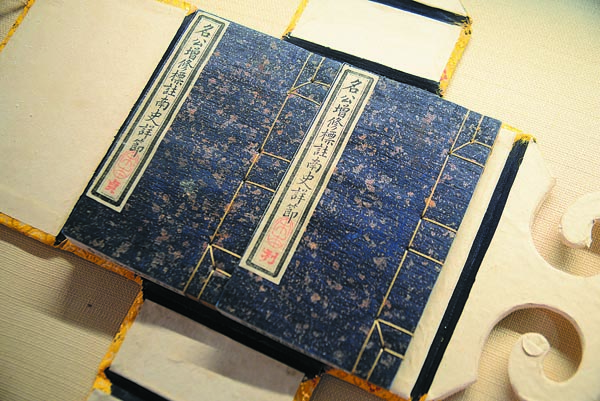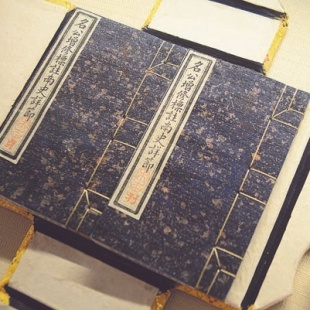Campus tale for ancient books


Over 200 copies of ancient manuscripts and books from the university's collection are showcased for the monthlong exhibition, Varied Splendor of Literary Troves: Selected Treasures From Nanjing University, which will run until Dec 21.
"We've been categorizing our inventory of ancient books for years," says Shi Mei, deputy director of Nanjing University Library and chief curator of the exhibition.
"And this is an opportunity to show how our traditional culture has been inherited through their pages," she adds. "Therefore, the very best from our collection is being presented."
According to Shi, it is the largest-scale exhibition of ancient books ever held by the university, and also one of the largest among Chinese universities.
Ancient Chinese books are defined as those predating 1911, the end of the monarchy in China.
Since 2014, the National Center for Preservation and Conservation of Ancient Books, which is based in the National Library of China in Beijing, has sponsored and helped to organize a series of exhibitions around the country under the banner Varied Splendor of Literary Troves, as translated from Cefu Qianhua, its original Chinese title.
The ongoing event at Nanjing University, or NJU, is the 30th exhibition in the series. It is only the second university involved in the program, the other being Zhejiang University, as most of the rest were presented by provincial- or city-level public libraries.
It is probably not exaggerating to call many of the exhibits "national treasures".
Another highlighted exhibit is a set of four printed books compiled by iconic Confucian philosopher Lyu Zuqian from the Song Dynasty (960-1279), which are annotations on the history of the Southern Dynasty (420-589). It is the oldest printed work in the university's collection and is also an example of early-stage Chinese print technology.



































